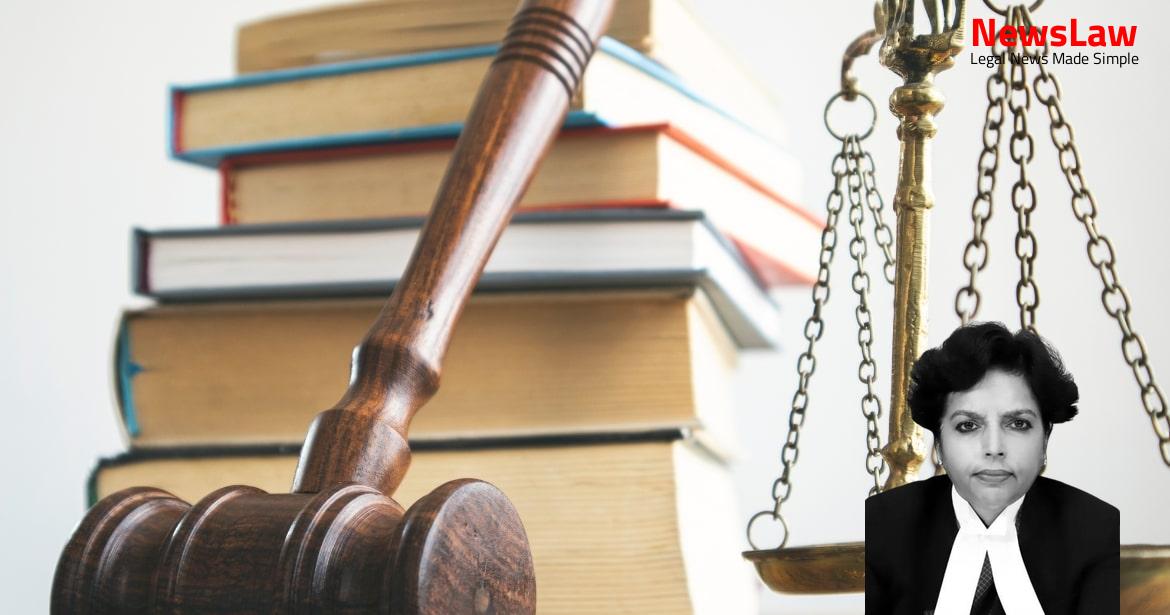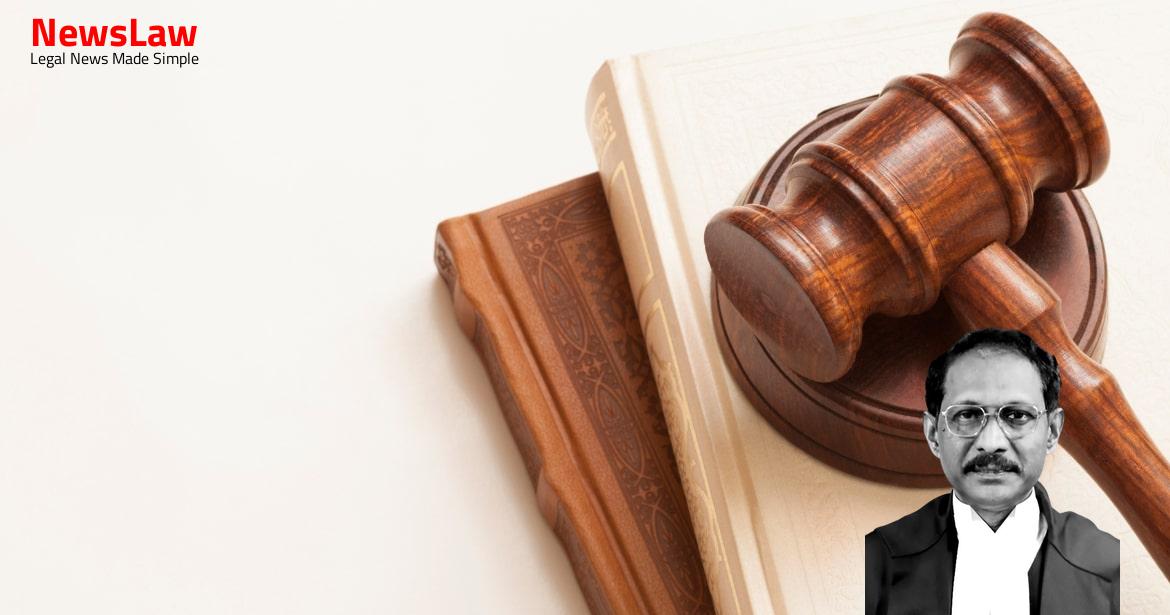Dive into a comprehensive review of a recent court case focusing on the court’s in-depth legal analysis regarding pre-emption rights and the statutory deposit requirements. The case delves into the nuances of fulfilling statutory provisions and the significance of adherence to legal principles in pre-emption matters. Stay tuned to unravel the complexities of legal interpretations in the realm of property law.
Facts
- The First Appellate Court allowed the appeal and set aside the order passed by the Trial Court.
- The application for pre-emption was allowed, even when a co-sharer transfers his entire share to someone other than a raiyat.
- High Court rejected the revision application and upheld the decision of the First Appellate Court.
- High Court granted time to pre-emptors to deposit balance consideration money with an additional 10% within 30 days.
- The purchaser (pre-emptee) filed the current appeals against the High Court’s judgment.
- The appellant, a stranger to the property, purchased the undivided share from the daughters of the original owner, Khudiram Bhattacharya.
- The pre-emption case was filed by the sons of Khudiram Bhattacharya, claiming that their sisters sold their undivided share to the appellant without following the statutory notice requirements.
- Upon the death of Khudiram Bhattacharya and his widow, the three sons and two daughters inherited the property with 1/5 share each.
- The daughters sold their 2/5 undivided share to the appellant through a registered sale deed dated 23.11.2011.
Also Read: Ruling on Circumstantial Evidence in Murder Case
Arguments
- The appellant argued that the Trial Court dismissed the pre-emption application stating that since the vendors of the pre-emptee transferred their entire share in the property, the application under Section 8 of the Act, 1955 was not maintainable.
- The appellant heavily relied on the Barasat Eye Hospital case but the High Court dismissed the revision application based on the Sk. Sajhan Ali case, maintaining the pre-emption application’s validity even with the transfer of the entire share of a co-sharer.
- The appellant contended that the mandatory requirement of depositing the entire sale consideration along with 10% was not complied with at the time of submitting the pre-emption application.
- The appellant argued that without such deposit, the pre-emption application should not be considered, and only after fulfillment of this condition can further inquiry under Section 9 of the Act, 1955 be conducted.
- The condition mentioned in Section 8 has now been complied with by the appellant.
- The contention raised regarding non-deposit of the entire sale consideration with 10% additional sale consideration is no longer available to the appellant.
- The pre-emptors did not initially deposit the entire sale consideration with 10% additional sale consideration as they believed the sale consideration mentioned in the sale deed was on the higher side.
- Subsequently, the pre-emptors deposited the entire sale consideration with the additional 10% as ordered by the High Court.
Also Read: Challenging Legal Presumptions in Negotiable Instrument Cases
Analysis
- The right of pre-emption is considered a very weak right and must be strictly construed.
- The pre-emptor has a secondary right to follow the thing sold and steps into the shoes of the original vendee.
- It is a right to acquire the whole property sold, not just a share.
- The plaintiff must have a superior right to that of the vendee for pre-emption.
- Legitimate methods can defeat the pre-emption right, such as allowing a claimant with superior or equal right to be substituted.
- An application under Section 8 may be maintainable even if a co-sharer transfers their share to a non-raiyat, as affirmed in Naymul Haque case.
- The requirement to deposit the entire sale consideration with 10% higher amount was not raised earlier and may not be a valid ground to challenge pre-emption.
- Historical context of pre-emption was discussed in Bhau Ram and Bishan Singh cases, enhancing understanding of the right.
- The interpretation of the pre-emption law ensures both the amount to be deposited and the time-frame are significant and must be adhered to.
- Pre-emptors must deposit the entire sale consideration along with 10% additional sale consideration with the pre-emption application as per the Act
- The right of pre-emption is triggered off only upon depositing the full amount as per Section 8 of the Act
- The time period for making the deposit is sacrosanct and cannot be extended, as per past judgments
- Inquiry into the stated consideration or any additional amounts payable can only be made after the full amount is deposited
- The phrase ‘the remainder, if any, being refunded to the applicant’ refers to excess amounts, not at the discretion of the applicant
- High Court permitted pre-emptors to deposit balance sale consideration, but it goes against Section 8 of the Act.
- Pre-emptors must deposit entire sale consideration with additional 10% as per Section 8 before further enquiry under Section 9.
- Non-deposit of entire sale consideration goes to the root of the matter on maintainability of pre-emption application.
- Admittedly, pre-emptors did not fulfill the statutory requirement of depositing the full sale consideration with additional 10% as per Section 8.
Also Read: Legal Analysis Critique in High Court’s Quashing Order
Decision
- Impugned judgments and orders by the High Court and First Appellate Court are quashed and set aside.
- The pre-emption application by the original pre-emptors stands dismissed.
- The present appeals succeed and are allowed.
- Original pre-emptors are allowed to withdraw any amount deposited with the pre-emption application or subsequent deposits.
- No costs are awarded in the circumstances of the case.
- Pending applications are disposed of.
Case Title: ABDUL MATIN MALLICK Vs. SUBRATA BHATTACHARJEE (2022 INSC 518)
Case Number: C.A. No.-003499-003499 / 2022



